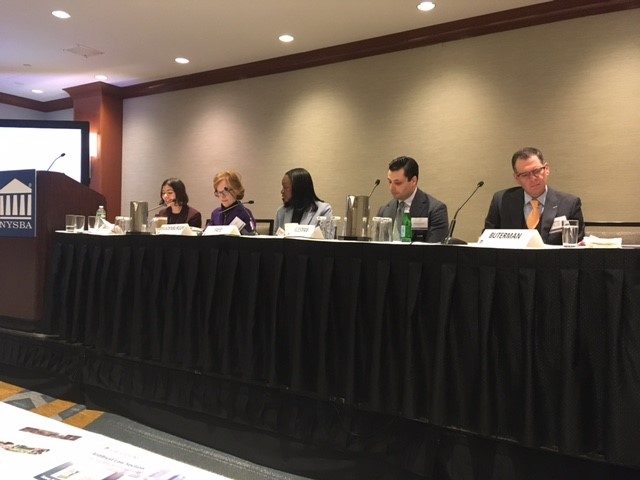Elections Around the World Ramp Up Uncertainty in Big Tech Mergers and Acquisitions
1.17.2024

Upcoming elections around the world will only ramp up uncertainty in the world of Big Tech mergers and acquisitions as anti-trust regulators and technology companies warily eye each other’s strategies.
Different U.S. administrations, or even officials within an administration, can view the antitrust environment differently and corporate executives are on guard to adapt to shifting landscapes in 2024 and 2028, Lawrence Buterman, a partner at Latham & Watkins, told lawyers gathered at the opening day of the New York State Bar Association’s Annual Meeting in New York City.
“It’s a dynamic landscape,” said Buterman, one of several panelists speaking at an Antitrust Law Section panel titled “A Survey of Big Tech Enforcement, From Consolidation to Monopolization.” “Overall, there is a lot of uncertainty in the anti-trust enforcement area.”
Rachel Brandenburger, global senior adviser for APCO Worldwide in New York, pointed out that Big Tech companies must be ready for a wide range of conclusions from regulators around the world. The Federal Trade Commission, for example, challenged Microsoft’s recent acquisition of the video game publisher Activism Blizzard while the deal was approved by the European Commission. The acquisition also was approved by regulating authorities in Brazil, China, Japan and South Korea. Based in New York, APCO is an advisory, advocacy and reputation management services company. Brandenburger likened the merger landscape to a “jigsaw puzzle” that must be fit together.
Shaoul Sussman, associate director for litigation in the Bureau of Competition at the Federal Trade Commission, opened the panel discussion by noting the long stretch of time surrounding the resolution of many antitrust cases. “Between the time the press release is issued, and a court issues a decision, there is a long period of time . . . five, six or seven years,” Sussman said. “This is informing how we look at the merger arena.”
The commission is well aware of the drain that litigation has on its resources, both financial and personnel, and the added costs needed to unwind any Big Tech acquisitions judged as anti-competitive. “This is informing our work,” he said. “There is skepticism about what might happen if we let a merger go through.”
Buterman noted the “enormous power” that agencies wield as executives try to map out their corporate strategies. Regulators can challenge a merger transaction based on a theory that a nascent company can pose a challenge to competition in an industry. “For companies, it is like having the Sword of Damocles hanging over their heads,” he said, adding the uncertainty can harm companies. Noting the long time period between the filing of antitrust cases and outcomes, he said he thought it was incumbent on courts to slow down the process of litigation. Losses in the courts, he noted, could embolden some technology companies to move ahead with transactions.
Anne Catherine Raye, vice president of the Analysis Group, in Boston, Mass., noted that regulators can face setbacks, which will prompt reassessments of the merger landscape. She noted that Big Tech is not one big group, and all companies face complex economic issues even as entry to the technology industry is relatively easy, compared to other industries.
Buterman said company executives “believe in the rule of law” and need clear guidance on how agencies are going to look at their actions. “For those of us advising companies, there is not much to go on to help us determine when a transaction will not be scrutinized,” he added. Sussman said merging guidelines issued by regulating authority are meant to help companies understand regulators’ analysis of potential mergers.
The panel was moderated by Beatriz Marques, assistant attorney general in the New York State Attorney General’s Antitrust Office.



